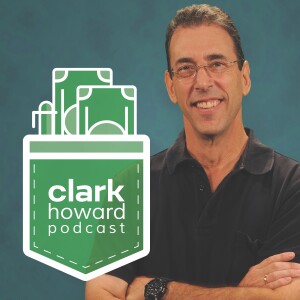

In this episode of Behind the Wealth, Roger and Elias break down a few headlines that hit close to home, and the wallet.
First up: the growing trend of people turning to AI for financial advice. Then, they turn to the rising number of student loan borrowers pressing “pause” on payments and what that means for household budgets and long-term goals.
Finally, listener Rick asks a question many parents face: should you prioritize college savings or your own retirement? The team compares the pros and cons of each path and shares practical strategies to help families balance both — without shortchanging their future selves.
If you’ve ever wondered how to invest in your children’s education and your own financial independence, this conversation is for you.
Get started on your path to financial freedom. www.premieriwm.com
Securities and advisory services offered through LPL Financial, a registered investment advisor, member FINRA/SIPC.
The opinions voiced in this show are for general information purposes only and are not intended to provide specific advice or recommendations for any individual. To determine which investments may be appropriate for you, consult with your attorney, accountant, and financial or tax advisor prior to investing.
Premier Investments & Wealth Management and LPL Financial do not provide tax advice, please consult your tax professional.
Economic forecasts set forth may not develop as predicted and there can be no guarantee that strategies promoted will be successful.
There is no guarantee that a diversified portfolio will enhance overall returns or outperform a non-diversified portfolio. Diversification does not protect against market risk.
All performance referenced All performance referenced is historical and is not a guarantee of future results. All indices are unmanaged and cannot be invested into directly.
There is no assurance that the techniques and strategies discussed are suitable for all investors or will yield positive outcomes. The purchase of certain securities may be required to effect some of the strategies. Investing involves risks including possible loss of principal.
Consult your tax professional about eligibility to Roth and Traditional IRA contributions. Contributions and earnings in a Roth IRA can be withdrawn without paying taxes and penalties if the account owner is at least 59 ½ and has held their Roth IRA for at least five years.
Traditional IRA account owners have considerations to make before performing a Roth IRA conversion. These primarily include income tax consequences on the converted amount in the year of the conversion, withdrawal limitations from a Roth IRA, and income limitations for future contributions to a Roth IRA. In addition, if you are required to take a minimum distribution (RMD) in the year you convert, you must do so before converting to a Roth IRA.
This information is not intended to be a substitute for specific individualized tax advice. We suggest that you discuss your specific tax issues with a qualified tax advisor.
More Episodes
All Episodes>>Create Your Podcast In Minutes
- Full-featured podcast site
- Unlimited storage and bandwidth
- Comprehensive podcast stats
- Distribute to Apple Podcasts, Spotify, and more
- Make money with your podcast












